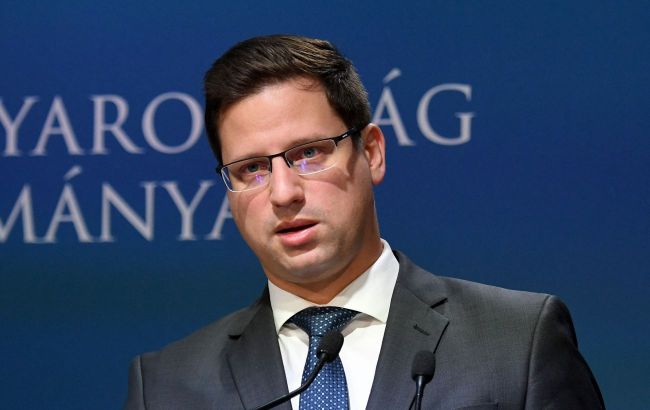Hungary accuses Ukraine of 'blackmail' over Russian oil transit
 Gergely Gulyás (Getty Images)
Gergely Gulyás (Getty Images)
Ukraine is "blackmailing" Hungary and Slovakia with sanctions against the Russian company Lukoil. There are three options for solving the problem, including the supply from other companies, according to the Hungarian Prime Minister's administration chief, Gergely Gulyás, reports Reuters.
“Ukraine is blackmailing the two countries that are standing for peace and ceasefire. If the situation is not resolved, there will be a fuel shortage... A solution must be found by September,” he said.
Gulyás adds that Budapest is looking for solutions.
“One is that the Ukrainians admit that they cannot do this to two EU countries. Another is that the European Commission helps us, and the third is that we find a legal loophole that allows the oil to be transferred by someone not affected by the sanctions,” he said.
Hungary's State Secretary for EU affairs János Bóka says that Hungary is studying whether Ukraine's actions violate the rules of the World Trade Organization.
Sanctions against Lukoil
Last week, Hungary and Slovakia said they were cut off from oil supplies from Russia's Lukoil through Ukraine due to Kyiv's sanctions against the company.
Kyiv insists that the same amount of oil is flowing through the pipeline as before, thanks to other Russian companies.
Hungary and Slovakia asked the European Commission to start consultations on a trade agreement with Ukraine. Valdis Dombrovskis, the EU trade commissioner, said that Brussels would need more time to gather evidence and assess the legal situation. He was supported by all EU countries that participated in the meeting on July 24.
The Fitch rating agency reported that refineries in Slovakia and Hungary owned by the Hungarian MOL group faced significant credit risk after Ukraine decided to impose sanctions on Lukoil.
Hungary and Slovakia have been exempted from the European-wide ban on Russian oil imports following Moscow's full-scale invasion of Ukraine in 2022.

